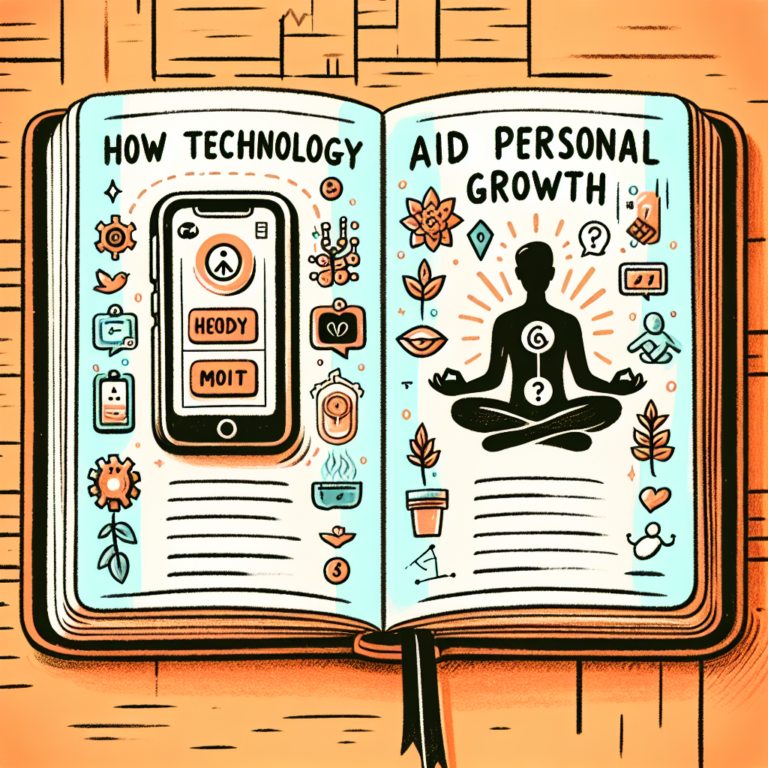The Role Of Personal Accountability In Success
In today’s fast-paced and competitive world, personal accountability plays a crucial role in achieving success. It refers to taking ownership of one’s actions, choices, and outcomes, regardless of the circumstances. By being personally accountable, individuals not only demonstrate their reliability and integrity but also gain a sense of empowerment and control over their lives. This article explores the significance of personal accountability in various aspects of life and highlights how it can contribute to personal growth and accomplishment. Whether it’s in the workplace, relationships, or personal development, embracing personal accountability can pave the way to a successful and fulfilling life.
Definition of Personal Accountability
Understanding personal accountability
Personal accountability is the act of taking responsibility for one’s actions, decisions, and outcomes. It involves acknowledging the role you play in shaping your own life and taking ownership of the choices you make. Personal accountability goes beyond just accepting credit for successes; it also means acknowledging and learning from mistakes and failures.
Differentiating personal accountability from external factors
It’s important to recognize that personal accountability is distinct from external factors that may influence our lives. While external circumstances can impact our opportunities and experiences, personal accountability focuses on how we respond to and navigate those circumstances. It’s about recognizing that we have control over how we react and the choices we make, regardless of external factors.
Importance of Personal Accountability in Success
Taking ownership of actions
One of the key aspects of personal accountability is accepting responsibility for our actions. When we take ownership of our choices and behaviors, we become active participants in our own lives. This mindset allows us to learn from our mistakes, grow from challenges, and make proactive changes to achieve our goals. By taking ownership, we can identify areas for improvement and take the necessary steps to make positive changes.
Creating a sense of control and empowerment
Personal accountability empowers us by shifting our focus from blaming external factors to taking control of our own lives. When we acknowledge that we have the power to shape our own outcomes, we gain a sense of control and agency. This feeling of empowerment motivates us to pursue our dreams, overcome obstacles, and strive for success.
Building trust and credibility
Personal accountability is closely linked to building trust and credibility, both in personal relationships and professional settings. When we consistently demonstrate personal accountability, others perceive us as reliable and trustworthy. They know that we will follow through on our commitments and take responsibility for our actions. This fosters stronger relationships, enhances collaboration, and opens doors for new opportunities.

Benefits of Personal Accountability
Enhanced self-awareness and self-improvement
By embracing personal accountability, we gain the opportunity to develop a deeper understanding of ourselves. Taking responsibility for our actions requires self-reflection and introspection. Through this process, we become more self-aware, recognizing our strengths, weaknesses, and areas for growth. This self-awareness allows us to make deliberate choices and take actions that align with our values and goals, leading to personal growth and improvement over time.
Increased motivation and drive
Personal accountability fuels motivation and drive. When we hold ourselves accountable for our actions and outcomes, we become more invested in the pursuit of success. We establish clear goals and take consistent action towards achieving them. This focus and determination propel us forward, even in the face of challenges and setbacks, ultimately increasing our chances of success.
Improved problem-solving and decision-making skills
Being personally accountable requires us to critically assess situations, analyze our options, and make informed decisions. By continually evaluating our choices, we sharpen our problem-solving and decision-making skills. We learn to consider the potential consequences of our actions and make choices that align with our long-term goals. This ability to think critically and make sound decisions is invaluable in both personal and professional contexts.
Developing Personal Accountability
Setting clear goals and objectives
Setting clear goals and objectives is crucial for personal accountability. When we have a clear vision of what we want to achieve, it becomes easier to hold ourselves accountable for taking the necessary actions. Goals can be both short-term and long-term, providing a roadmap for our personal development and success. By regularly reviewing and refining our goals, we ensure that our actions remain aligned with our desired outcomes.
Creating a personal accountability system
Establishing a personal accountability system helps us stay on track and measure our progress. This system can include various tools and strategies, such as setting deadlines, tracking milestones, or utilizing accountability apps. By implementing a systematic approach to personal accountability, we create a framework that supports our commitment to our goals and holds us accountable for our actions.
Seeking feedback and self-reflection
Feedback from others can provide valuable insights and perspectives that contribute to personal growth. By actively seeking feedback from trusted individuals, we open ourselves up to learning opportunities and gain a better understanding of our strengths and areas for improvement. Additionally, engaging in self-reflection allows us to assess our own behaviors and actions, fostering personal accountability.

Overcoming Challenges and Obstacles
Addressing fear of failure
Fear of failure often hinders personal accountability. It can prevent us from taking risks, pursuing our goals, or even acknowledging our mistakes. Overcoming this fear requires a shift in mindset. Instead of viewing failure as a negative outcome, we can reframe it as a chance to learn and grow. By embracing failure as a natural part of the learning process, we become more resilient and willing to take responsibility for our actions.
Managing setbacks and obstacles
Challenges and setbacks are an inevitable part of life. However, personal accountability helps us navigate these obstacles effectively. Rather than becoming overwhelmed or defeated, we approach setbacks as opportunities for growth and reflection. We assess the situation, learn from our mistakes, and adjust our strategies accordingly. With personal accountability, setbacks become stepping stones rather than roadblocks on the path to success.
Building resilience and adaptability
Personal accountability cultivates resilience and adaptability. When we take responsibility for our actions, we develop the resilience to bounce back from failures and setbacks. We recognize that setbacks do not define us and that we have the power to overcome them. Additionally, personal accountability encourages adaptability, as it requires us to assess and adjust our behaviors and strategies in response to changing circumstances.
Seeking Support and Accountability Partners
Identifying supportive individuals or groups
Having a support system is crucial for maintaining personal accountability. Surrounding ourselves with supportive individuals who share our values and goals can provide encouragement, motivation, and perspective. These individuals can serve as mentors, advisors, or simply as a source of inspiration. Additionally, joining groups or communities centered around personal accountability allows us to connect with like-minded individuals who can hold us accountable and help us stay focused on our objectives.
Establishing accountability partnerships
Accountability partnerships provide an added layer of support and structure. By partnering with someone who shares similar goals, we create a mutual commitment to hold each other accountable. Regular check-ins, shared progress updates, and constructive feedback can further enhance personal accountability. These partnerships foster a sense of camaraderie and accountability, driving both individuals to achieve their desired outcomes.
Utilizing resources and tools for accountability
Numerous resources and tools are available to aid personal accountability. From goal-tracking apps to accountability journals, these resources provide structure and aid in keeping ourselves accountable. Some individuals find value in hiring a coach or mentor who can provide guidance and hold them accountable. Utilizing these resources and tools helps us stay on track and maintain focus on our personal and professional goals.
Implementing Personal Accountability at Work
Taking ownership of tasks and projects
Personal accountability is particularly important in the workplace. Taking ownership of tasks and projects means not only completing them but also taking responsibility for the outcome. It involves delivering quality work, meeting deadlines, and communicating effectively with colleagues and supervisors. When we hold ourselves accountable in the workplace, we demonstrate reliability, professionalism, and a commitment to excellence.
Demonstrating reliability and meeting commitments
Reliability is a cornerstone of personal accountability. By consistently meeting commitments and following through on our promises, we establish ourselves as reliable individuals. Colleagues and superiors trust us to deliver on our obligations, which enhances our professional reputation and opens doors for future opportunities. Reliability fosters effective collaboration, teamwork, and a positive work environment.
Promoting a culture of accountability within a team
Personal accountability not only benefits individuals but also contributes to a positive team dynamic. By promoting a culture of accountability within a team, each member takes responsibility for their actions and outcomes. This shared commitment to personal accountability creates a supportive and productive environment. It encourages open communication, fosters trust, and cultivates a sense of shared responsibility for the team’s success.
Personal Accountability in Relationships and Personal Life
Holding oneself accountable in relationships
Personal accountability plays a crucial role in maintaining healthy relationships. It involves taking responsibility for our actions, words, and behaviors within our personal relationships. By holding ourselves accountable, we become more aware of the impact our actions have on others. This awareness fosters empathy, honesty, and effective communication, strengthening the bonds we share with our loved ones.
Balancing personal and professional responsibilities
Achieving personal accountability requires finding a balance between personal and professional responsibilities. It means recognizing that both aspects of our lives require attention and dedication. By setting boundaries, prioritizing tasks, and managing our time effectively, we ensure that we fulfill our commitments in both personal and professional domains. This balance allows us to thrive and find fulfillment in all areas of our lives.
Managing personal growth and development
Personal accountability is integrally linked to personal growth and development. When we hold ourselves accountable, we actively seek opportunities for improvement and growth. This may involve pursuing further education, seeking out new experiences, or embracing challenges that push us outside of our comfort zones. By actively managing our personal growth and development, we create a life filled with purpose, satisfaction, and continual progress.
The Impact of Personal Accountability on Happiness and Fulfillment
Achieving personal goals and aspirations
Personal accountability provides the foundation for achieving our personal goals and aspirations. By taking responsibility for our actions and choices, we increase the likelihood of success. When we hold ourselves accountable, we remain focused on our goals and take consistent action towards them. This dedication and perseverance lead to a sense of accomplishment and fulfillment when we reach milestones or achieve our desired outcomes.
Building a sense of purpose and fulfillment
Personal accountability allows us to live a purpose-driven life. When we take ownership of our actions and actively pursue our goals, we create a sense of purpose. We understand that our choices and decisions have a direct impact on our lives and the lives of those around us. This sense of purpose gives our actions meaning and instills a sense of fulfillment and satisfaction.
Finding joy and satisfaction in personal achievements
Personal accountability leads to a greater sense of joy and satisfaction in our personal achievements. When we take responsibility for our successes, they become a true reflection of our efforts and dedication. This sense of pride and accomplishment enhances our overall happiness and well-being. By acknowledging our role in our achievements, we develop a positive mindset and gratitude for the opportunities we have created for ourselves.
Conclusion
Personal accountability is a powerful force that drives success, happiness, and fulfillment. By taking ownership of our actions, decisions, and outcomes, we create a sense of control and empowerment in our lives. Through personal accountability, we enhance our self-awareness, increase motivation, and improve our problem-solving and decision-making skills. By setting clear goals, creating accountability systems, and seeking feedback, we develop the habits and mindset necessary for personal accountability. Overcoming challenges, seeking support, and embracing accountability partnerships further strengthen our commitment to personal accountability. Whether in the workplace, relationships, or our personal lives, personal accountability fosters trust, reliability, and personal growth. Through personal accountability, we achieve our goals, build a sense of purpose, and find joy and fulfillment in our achievements. So, embrace personal accountability, take responsibility for your actions, and empower yourself to create the life you desire.







